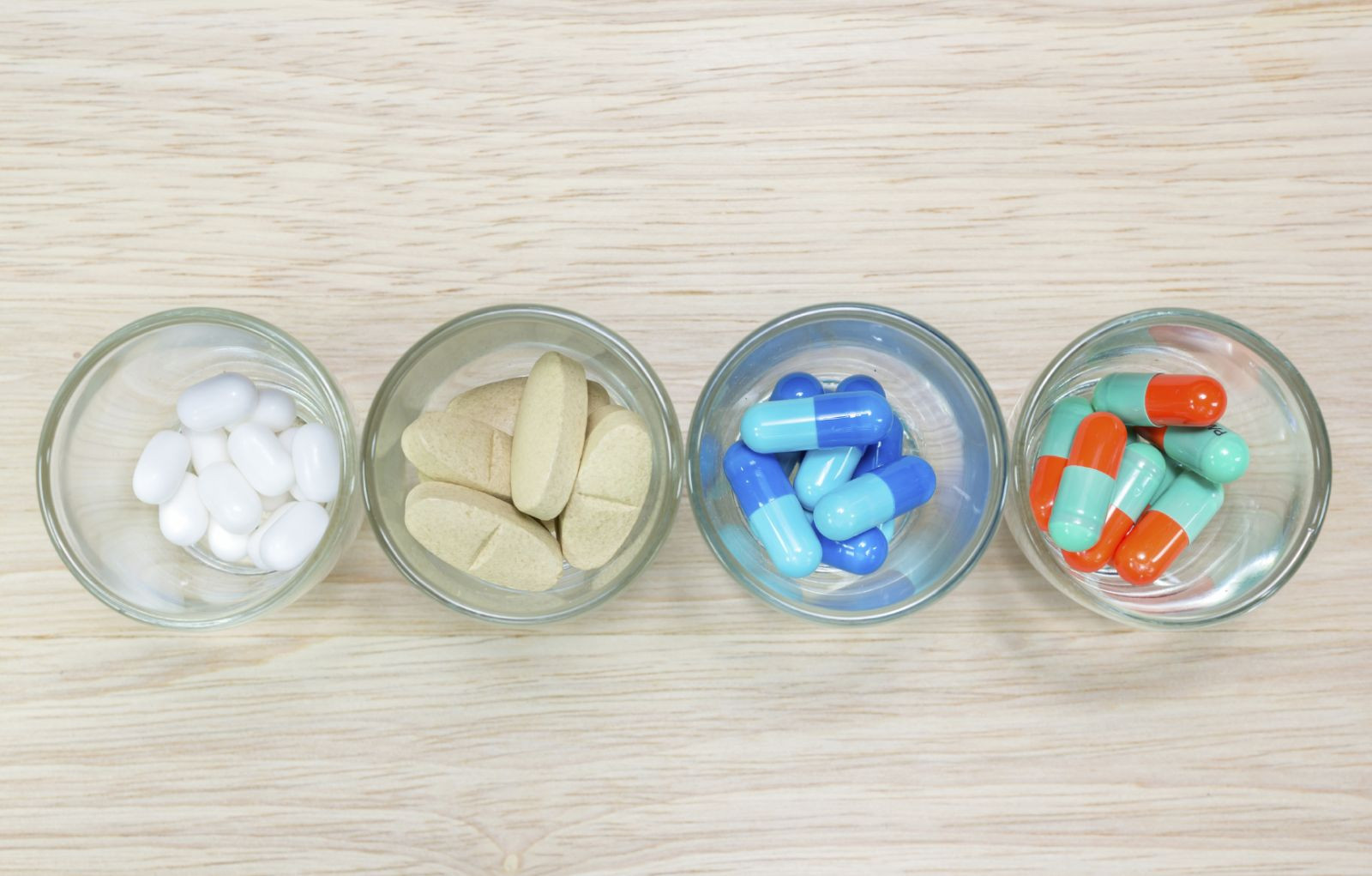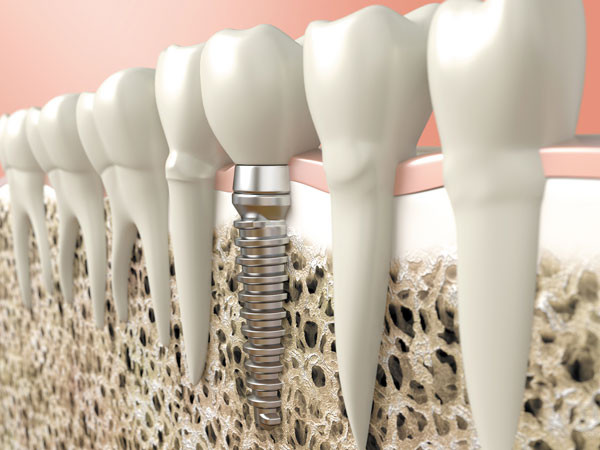
5 timeless habits for better health

What are the symptoms of prostate cancer?

Is your breakfast cereal healthy?

When pain signals an emergency: Symptoms you should never ignore

Does exercise give you energy?

Acupuncture for pain relief: How it works and what to expect

How to avoid jet lag: Tips for staying alert when you travel

Biofeedback therapy: How it works and how it can help relieve pain

Best vitamins and minerals for energy

Should you take probiotics with antibiotics?
Staying Healthy Archive
Articles
Prescription drug and supplement use on the rise among seniors
New findings suggest that one in six older adults is at risk for drug interactions. Should you be concerned?
Image: iStock
Earlier this year, a study that examined the pill-taking habits of older Americans suggested that seniors are taking more prescription drugs and dietary supplements than in years past. Not surprisingly, most of these pills are used to treat or prevent cardiovascular disease, the nation's leading killer.
The report found that more than a third of adults ages 62 to 85 take five or more prescription medications, over-the-counter (OTC) drugs, or dietary supplements (see box for a description of the study). The study found that about one in six older adults is taking a combination that could cause a major interaction.
Gut reaction: How bacteria in the belly may affect the heart
A better understanding of the gut microbiome may herald novel ways to prevent artery-clogging plaque.
Image: Christos Georghiou/Thinkstock
The trillions of bacteria dwelling deep inside your digestive tract play a key role in your health. Collectively known as the gut microbiota, these microbes not only assist with digestion, but also make certain vitamins, break down toxins, and train your immune system. Over the past decade, scientists have uncovered compelling connections between different types of gut microbes and the development of obesity and diabetes—two factors closely tied to a higher risk of heart disease. Recently, several studies have explored how our gut microbes interact with the food we eat to spur artery-damaging inflammation and narrowing. While these findings are preliminary, experts hope they'll one day lead to personalized diet recommendations or other therapies to lower the risk of heart disease.
Artery damage
Avoiding blockages
The investigators then tested a molecule that blocks the production of TMA, which they gave to mice prone to atherosclerosis, thanks to their genes and a high-fat diet. The molecule, called DMB, occurs naturally in olive oil and red wine. The mice that got DMB in their water had healthier, clearer arteries than those that didn't.
Earlier this year, Chinese researchers described a different but related approach to preventing blood vessel injury in atherosclerosis-prone mice. By giving the mice a specific strain of bacteria called Akkermansia muciniphila, they discovered that they could prevent inflammation—the chronic, persistent immune response that contributes to the buildup of fatty plaque in arteries. The effect was largely due to a protein that was able to "tighten up" the communication between cells in the inner lining of the gut, Dr. Loscalzo explains. As a result, fewer toxins from the diet could pass from the gut into the bloodstream, which in turn dampened inflammation.
Gut check?
Does regular exercise reduce cancer risk?
It appears people with the highest levels of physical activity have lower rates of cancer of the esophagus, lung, kidney, colon, head and neck, rectum, bladder and breast, compared with people with the lowest levels of physical activity.
Exercise-free activities that work your muscles and heart
Dancing, playing sports, and even cleaning your house can give you a nontraditional workout that helps maintain good health.
Image: Jon Feingersh/Thinkstock
Exercising is supposed to be a regular part of your daily health maintenance. That can be a problem if you don't have the motivation to get your heart pumping; you raise your risk for weight gain, chronic disease, and an earlier death.
Fortunately, you can get plenty of effective exercise by engaging in recreational or household activities that work your heart and muscles. "There's a real reward in doing an activity you enjoy, such as swimming or playing with your grandchildren. You get a workout, but it doesn't seem like you're exercising, and you may be more willing to keep doing that activity every day because it's fun," says Dawn Rogers, a physical therapist at Harvard-affiliated Brigham and Women's Hospital.
Dental implant reality check
Are these advances in dental health right for you?
Image: GuidoVrola/Thinkstock
Tooth decay, gum disease, and injury to the mouth can all lead to the loss of one or more teeth. The standard solution usually involves removable dentures or a fixed bridge. A newer option, dental implants, is also gaining popularity. "Implants can significantly improve your quality of life," says Dr. German Gallucci, department chair of restorative dentistry at the Harvard School of Dental Medicine.
About implants
Uses and benefits
In older adults, implants are typically used to replace one or two missing teeth (but not a mouthful). "Before implants, the only option we had was a bridge. With the implant, you can independently restore the tooth. That's a significant improvement in our therapy, to the point that we have reduced the number of bridges we do nowadays," says Dr. Gallucci.
Implants are also used to anchor a bridge or dentures. "Without implants, dentures move while you eat or speak, which makes it difficult to do either. But when you clip the denture onto an implant, it stays in place and functions normally," says Dr. Gallucci. He says supporting dentures or bridges may require two or more implants.
Requirements
Considerations
There are few downsides to getting implants. One is cost. "The range varies from state to state. It could be between $2,000 and $6,000 for one tooth and crown. But that's comparable to a bridge," says Dr. Gallucci.
Some insurance plans cover implants, especially for a missing tooth. Medicare does not pay for implants.
Another drawback: the time involved in healing. But the benefits, says Dr. Gallucci, can be worth it.
If you're interested in pursuing implants, he recommends getting several opinions. You can start by making an appointment with either a dentist who's surgically trained to place implants and has years of experience, or a prosthodontist—an expert in tooth restoration and replacement.
What to eat when your teeth and gums hurtIt's common after oral surgery to have some pain for a day or two, or even longer. This may mean that you have to be especially mindful of what you eat and drink. Sensitivity to hot and cold items is typical. But even the act of chewing can be uncomfortable. What's best to eat? "Avoid crunchy and sticky foods and stick to a soft diet," says Dr. German Gallucci, a restorative dentistry expert at the Harvard School of Dental Medicine. "Go with soups, pastas, yogurt, and even baby food." He advises avoiding the side of your mouth that's been operated on, and eating only small bites of food that keep your teeth from making forceful contact. Other tips: Avoid anything very hot on the first day after surgery, as heat can increase the risk of bleeding; drink a lot of fluid, at least five or six cups per day; and baby yourself. "Give your mouth a chance to heal," he says. |
More evidence that a healthy lifestyle might help prevent cancer
It appears that four healthy habits—getting 150 minutes of moderate-intensity exercise per week, maintaining a body mass index between 18.5 and 27.5, no smoking, and drinking only in moderation—may prevent many cancer cases and death in white people.
Will the food industry ease up on salt?
On June 1, 2016, the FDA proposed voluntary guidelines for short- and long-term goals to cut sodium in commercially processed and prepared food.
Strategies for taking medications
Doctors may prescribe medications in hopes of helping a patient, but statistics show that at least half of all patients do not follow through with the treatment. Dr. Robert Schmerling explains why some people are choosing to skip taking medications and the possible results of not taking them.
Your blood work, on the edge of normal
What to do when routine test results are at the high or low end of the acceptable range.
Catching early changes in blood work may help prevent chronic disease, such as diabetes.
Image: Ca-ssis/Thinkstock
As a smart medical consumer, you know it's important to look over the results of your routine blood work, even when the numbers are all within the normal range. But what if you notice that some results are at the high or low end of that range? Should you be concerned about this?
Understanding empty calories
When a food provides primarily calories, and little else of value to health, that food is sometimes described as having empty calories.

5 timeless habits for better health

What are the symptoms of prostate cancer?

Is your breakfast cereal healthy?

When pain signals an emergency: Symptoms you should never ignore

Does exercise give you energy?

Acupuncture for pain relief: How it works and what to expect

How to avoid jet lag: Tips for staying alert when you travel

Biofeedback therapy: How it works and how it can help relieve pain

Best vitamins and minerals for energy

Should you take probiotics with antibiotics?
Free Healthbeat Signup
Get the latest in health news delivered to your inbox!
Sign Up










